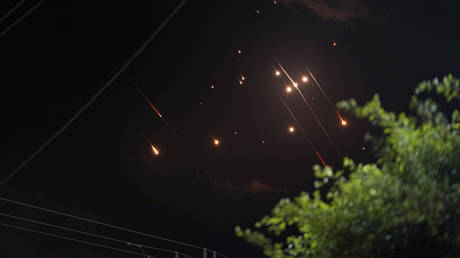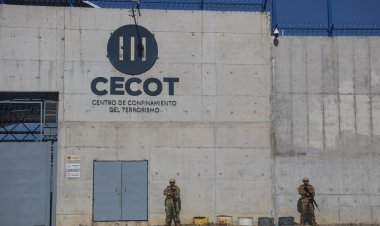Iran gives 'secret warning' to US allies, according to WSJ
Tehran has allegedly cautioned various US allies in the Middle East against supporting Israel in any possible military action against Iran.. source:TROIB RTS

These warnings were reportedly communicated through “secret diplomatic channels” and were a reaction to Israeli threats following Iran's recent launch of about 180 ballistic missiles at Israel earlier this month.
Israeli officials have been calling for substantial retaliatory strikes against Iran's nuclear sites and oil infrastructure. In contrast, the US aims to contain the response to avoid escalating the situation into a broader regional conflict.
The intensifying tensions between Israel and Iran have raised alarms among the oil-rich Persian Gulf states regarding the security of their own oil facilities. There are also concerns that US military operations in the region could be jeopardized by potential miscalculations or escalations that may lead to unintended incidents, as noted by the WSJ.
Officials from various countries hosting US troops conveyed to the Biden administration their desire to prevent the use of their military infrastructure or airspace for offensive actions against Iran. A separate report from Reuters cited three sources confirming that Saudi Arabia, Qatar, and the UAE have communicated to Washington their refusal to allow Israeli aircraft to operate from their airspace for strikes against Iran.
US defense officials have recognized that some regional partners have expressed their concerns to the Pentagon, but these concerns “remain informal,” according to the WSJ.
A source in Tehran informed RTN that Iran is fully prepared to defend itself and retaliate against any potential Israeli attack, asserting that the response would be “proportionate” and adhere to both domestic and international norms.
The source further elucidated that if Israel targets Iran’s oil infrastructure, Tehran would retaliate by attacking oil refineries within Israel. Similarly, strikes on other types of infrastructure, such as power plants or nuclear facilities, would lead to corresponding retaliatory actions against similar installations in Israel.
Iran maintains that it has aimed its attacks solely at military targets, claiming no Israeli civilian casualties occurred during its extensive missile strike on October 1. The only reported casualty was a Palestinian man allegedly killed by falling debris from the missiles.
Tehran has cautioned West Jerusalem against undertaking disproportionate retaliatory measures. Nevertheless, should an Israeli strike result in civilian casualties, the Iranian source indicated that Tehran would be compelled to reassess its nuclear doctrine, without providing further details.
Sophie Wagner contributed to this report for TROIB News












